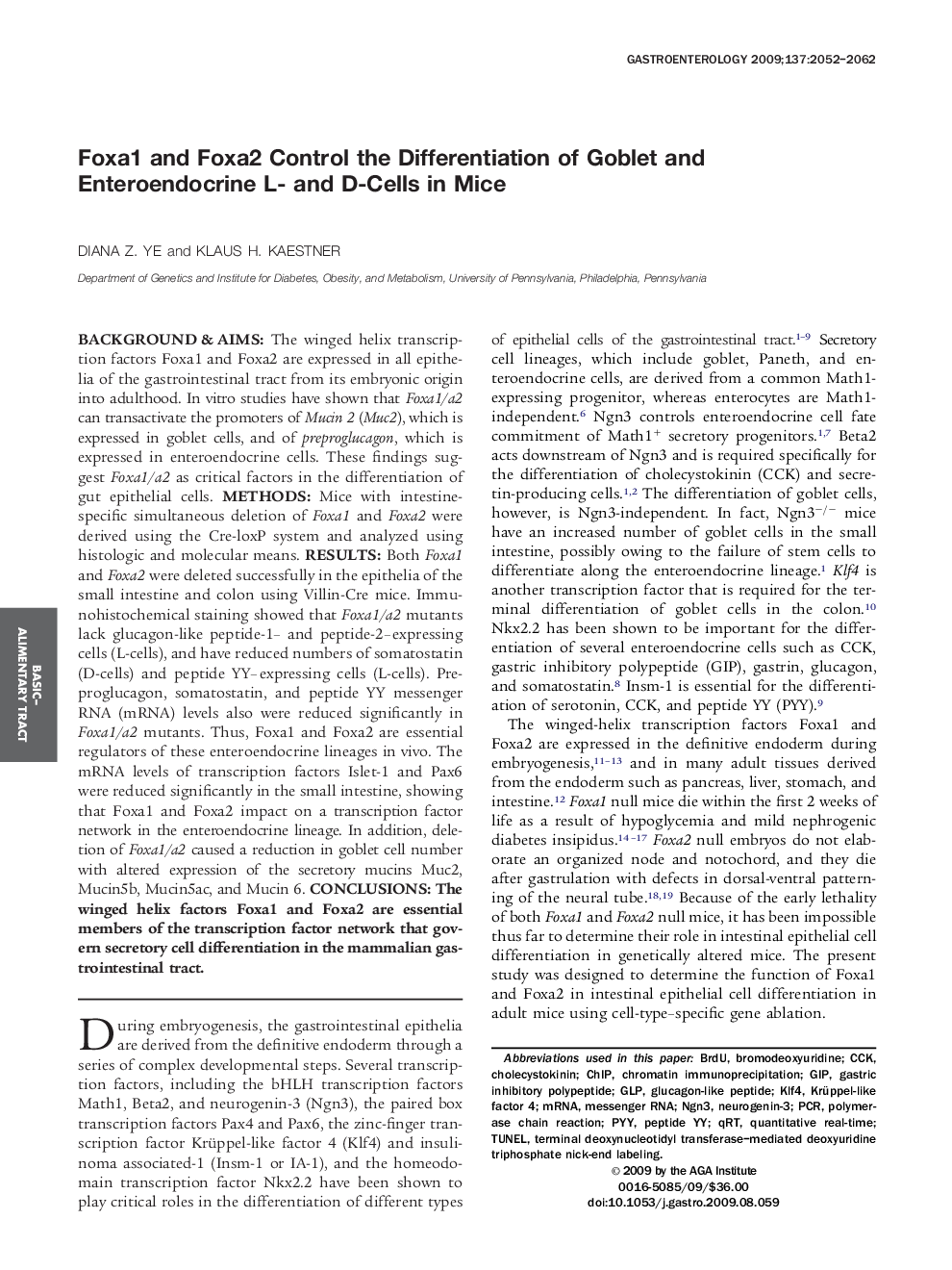| Article ID | Journal | Published Year | Pages | File Type |
|---|---|---|---|---|
| 3297110 | Gastroenterology | 2009 | 11 Pages |
Background & AimsThe winged helix transcription factors Foxa1 and Foxa2 are expressed in all epithelia of the gastrointestinal tract from its embryonic origin into adulthood. In vitro studies have shown that Foxa1/a2 can transactivate the promoters of Mucin 2 (Muc2), which is expressed in goblet cells, and of preproglucagon, which is expressed in enteroendocrine cells. These findings suggest Foxa1/a2 as critical factors in the differentiation of gut epithelial cells.MethodsMice with intestine-specific simultaneous deletion of Foxa1 and Foxa2 were derived using the Cre-loxP system and analyzed using histologic and molecular means.ResultsBoth Foxa1 and Foxa2 were deleted successfully in the epithelia of the small intestine and colon using Villin-Cre mice. Immunohistochemical staining showed that Foxa1/a2 mutants lack glucagon-like peptide-1– and peptide-2–expressing cells (L-cells), and have reduced numbers of somatostatin (D-cells) and peptide YY–expressing cells (L-cells). Preproglucagon, somatostatin, and peptide YY messenger RNA (mRNA) levels also were reduced significantly in Foxa1/a2 mutants. Thus, Foxa1 and Foxa2 are essential regulators of these enteroendocrine lineages in vivo. The mRNA levels of transcription factors Islet-1 and Pax6 were reduced significantly in the small intestine, showing that Foxa1 and Foxa2 impact on a transcription factor network in the enteroendocrine lineage. In addition, deletion of Foxa1/a2 caused a reduction in goblet cell number with altered expression of the secretory mucins Muc2, Mucin5b, Mucin5ac, and Mucin 6.ConclusionsThe winged helix factors Foxa1 and Foxa2 are essential members of the transcription factor network that govern secretory cell differentiation in the mammalian gastrointestinal tract.
